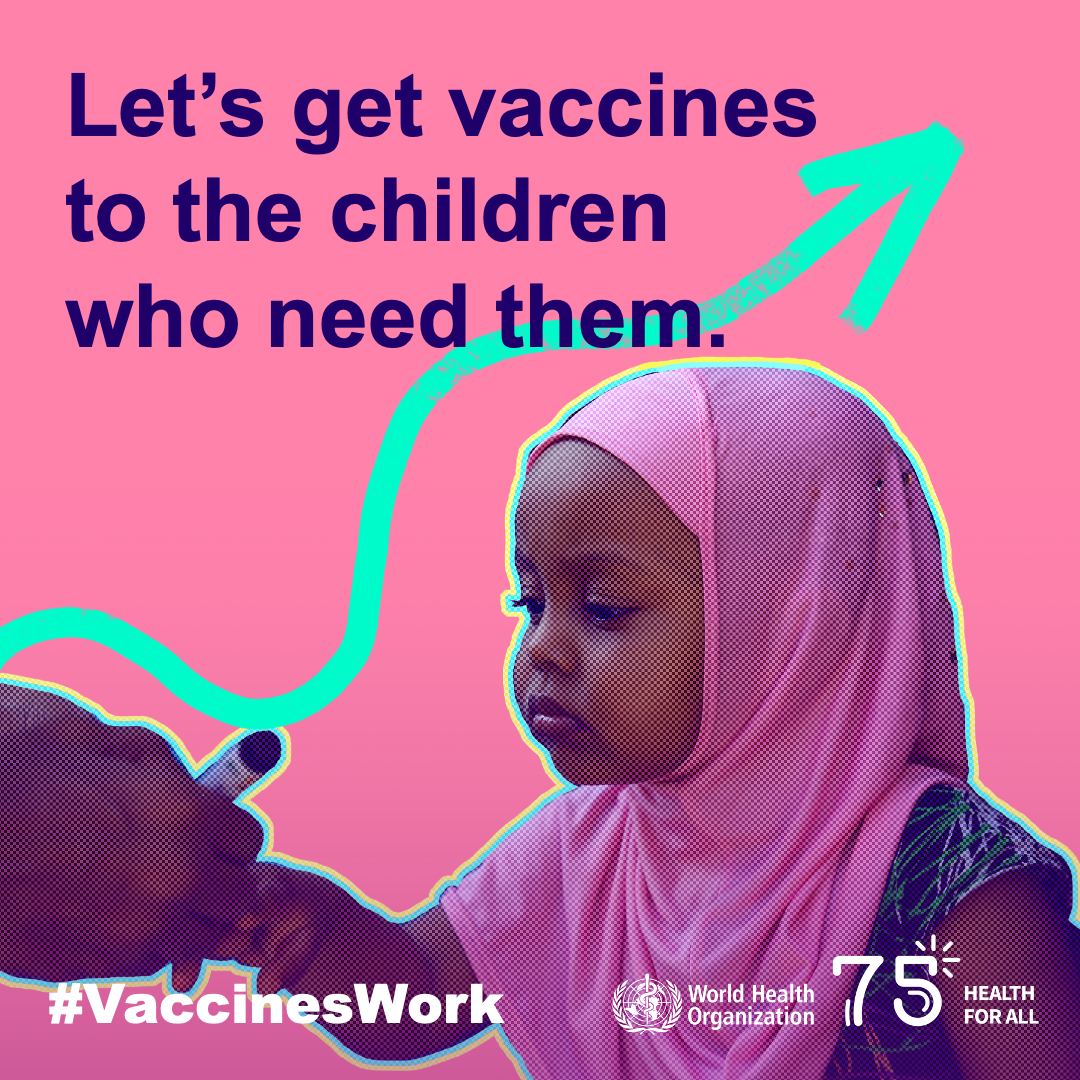World Immunisation Week
World Immunisation Week, celebrated in the last week of April, aims to highlight the collective action needed and to promote the use of vaccines to protect people of all ages against disease.
Through its convening power, WHO works with countries across the globe to raise awareness of the value of vaccines and immunisation and ensures that governments obtain the necessary guidance and technical support to implement high quality immunisation programmes.
The ultimate goal of World Immunisation Week is for more people – and their communities – to be protected from vaccine-preventable diseases.

AxessHealth supports The Big Catch-Up
Our purpose is to 'advance Africa's health equity'. Find out more about our vision, mission and P.A.C.K cultute, to see how you can be a part of the journey.

Overview
While immunisation is one of the most successful public health interventions, coverage has plateaued over the last decade. The COVID-19 pandemic and associated disruptions have strained health systems, with 25 million children missing out on vaccination in 2021, 5.9 million more than in 2019 and the highest number since 2009.
During 2021, about 81% of infants worldwide (105 million infants) received 3 doses of diphtheria-tetanus-pertussis (DTP3) vaccine, protecting them against infectious diseases that can cause serious illness and disability or be fatal.
Twenty five vaccine introductions were reported in 2021 (not including COVID-19 vaccine introductions). Although this is an increase from 17 introductions in 2020, it is well below the number of introductions of any year in the past two decades prior to 2020. This slowdown is likely to continue as countries focus on ongoing efforts to control the COVID-19 pandemic.
Key Facts
- Only 25 vaccine introductions other than COVID-19 vaccine were reported in 2021.
- Global coverage dropped from 86% in 2019 to 81% in 2021.
- An estimated 25 million children under the age of 1 year did not receive basic vaccines, which is the highest number since 2009.
- The number of girls not vaccinated against human papillomavirus (HPV) increased by 3.5 million, compared to 2019.
- In 2021, the number of completely unvaccinated children increased by 5 million since 2019.
Current medical news across Africa
All the latest, trending medical news today, straight to your inbox.
Our medical journalists cover the most pressing healthcare challenges in Africa. Stay up-to-date with our regular newsletter.
Check out our additional resources including AxessPoints (our video series).



JOIN
Free registration to be part of Africa's fastest-growing HCP network.
CONNECT
Build a network of contacts, companies, associations and more.
ENGAGE
Like, share, comment, save and collaborate.